
This feature will be released direct-to-streaming on Disney+ (and have a simultaneous limited run at the El Capitan Theatre in Hollywood, California).
For over 25 years, Pixar has been considered the biggest and best animation outfit in the world, creating elaborate and visually groundbreaking worlds with titles like Toy Story, Monsters, Inc., Finding Nemo and Inside Out to name just a few. Their latest effort is something of a contrast to many of the features that have preceded it. Luca feels much smaller in scope and more personal, telling a simpler coming-of-age and literal fish-out-of-water story.
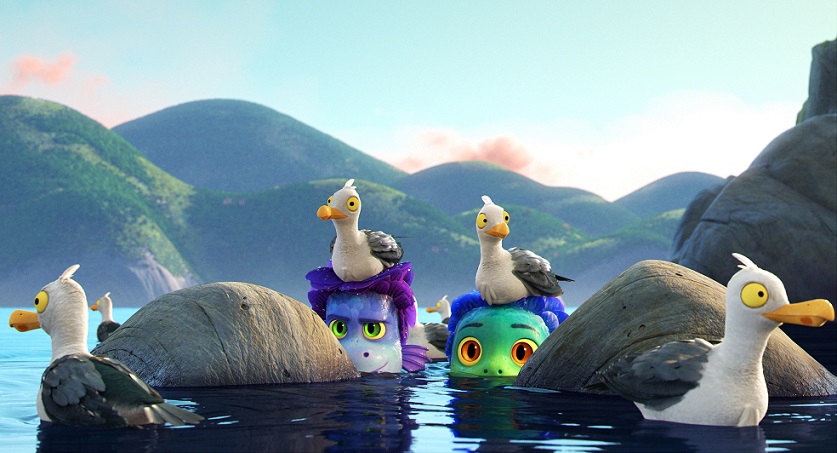
Luca Paguro (Jacob Tremblay) is a young, timid sea monster who lives with his mother (Maya Rudolph) and father (Jim Gaffigan) in the waters off of the coast of the Italian Riviera. While his parents insist that he avoid the dangerous humans above, the youngster is convinced to visit the surface by teenage sea monster, Alberto Scorfano (Jack Dylan Grazer). Luca learns that when they are dry, he and Alberto take on a human-like appearance. Naturally, family tensions arise as Luca finds himself returning again and again to land. Eventually, he and his pal decide to run away to the human world. Once there, they befriend Giulia Marcovaldo (Emma Berman) and make enemies with an arrogant teen named Ercole Visconti (Saverio Raimondo). Luca and Alberto try to fit in and make hasty plans to win a local triathlon that will earn them money for a Vespa, which they believe will whisk them away to permanent freedom.
Initially, this reviewer wasn’t overly enamored with the feature. The underwater sea monster kingdom looks perfectly fine, but doesn’t make a striking impression, certainly not visually wowing in the way that other titles from the studio have. The shy Luca is a genial and likable enough protagonist. But much like the animation and humor used in early scenes, it doesn’t make a notable impact. In fact, for the first 15 minutes or so, it seems as if this feature isn’t going to be a noteworthy Pixar production.
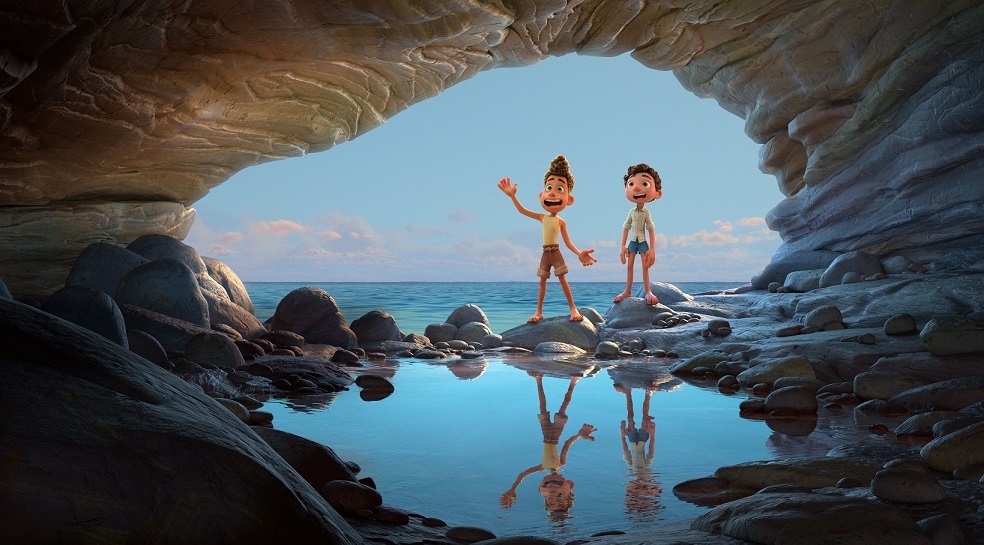
But a funny thing happens as Luca spends more time on the very scenic Italian Riviera, hangs out with Alberto and slowly gains a bit of confidence. Much like the lead character, the movie begins to quietly win over and charm viewers. We see Luca’s inaccurate but very amusing visions of what the world is like above water, as well as his unusual adoration for scooters. The village itself is far more spectacular on the eye and the interactions between the disguised sea monsters and human characters become considerably more entertaining.
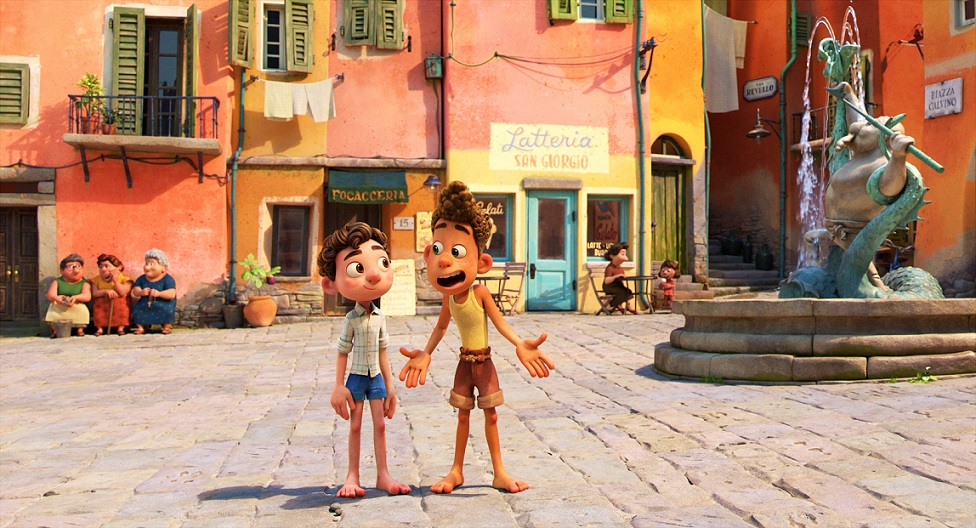
The leads are suddenly forced to stay dry and adapt to local customs, leading to plenty of enjoyably uncomfortable moments. The pair take in terrifying statues of sea monsters being harpooned and witness the town’s main export, fish, being diced up before them. And the big race, which features a swimming, pasta-eating and cycling element, allows for plenty of fun gags. The relationship between the two leads is authentically childlike and it also relatable to see Luca and Alberto hatch big plans that aren’t especially well-thought-out.
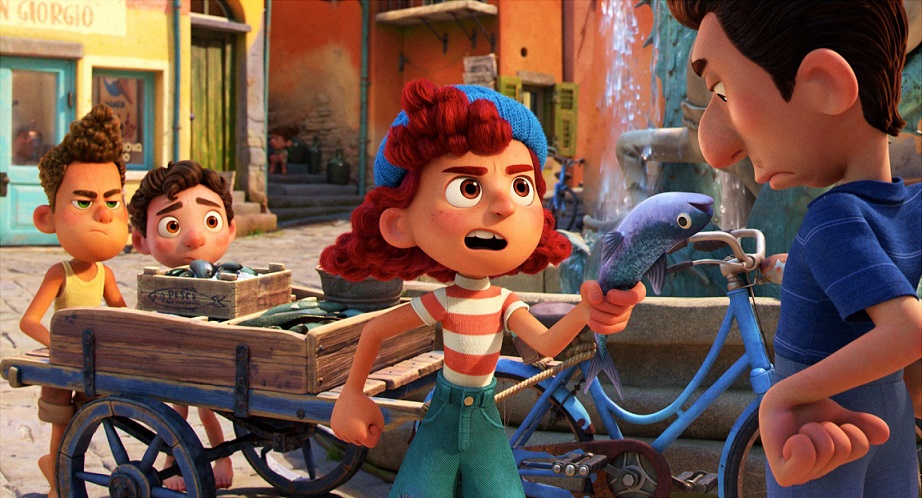
Additionally, the movie benefits from its memorable antagonists. The bullying, conceited Ercole is an extremely entertaining foil for the two leads, making bizarrely humorous demands of other kids around him (including expressing disappointment with a henchman by coaching another helper to slap them around). Not only is he consistently funny, but the all-too-brief appearance of Uncle Ugo (Sacha Baron Cohen) is also memorable. He is a sea monster who lives in the deepest, darkest reaches of the sea and expresses his love for his home in a hilariously eccentric manner. Viewers are advised to continue watching past the end credits for more Ugo fun.
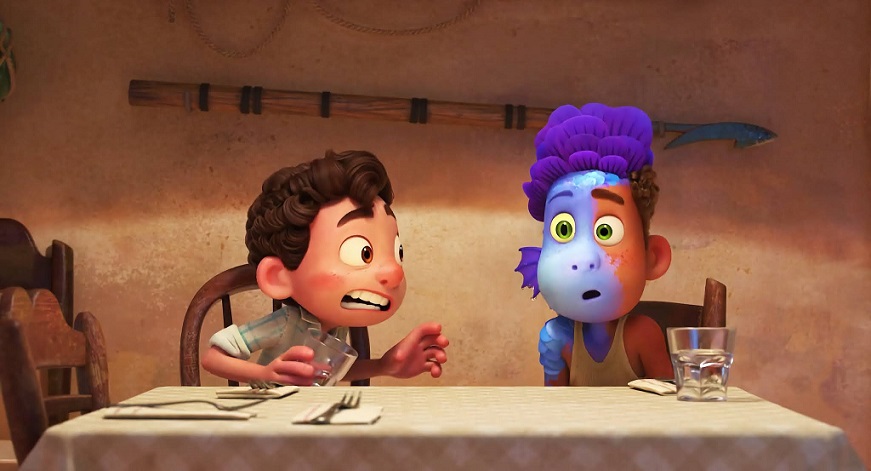
And this tale offers an interesting ending, allowing its various characters the opportunity to identify their different wants in life and choose their own paths. It’s remarkable that despite my initial resistance, this quiet and gentle effort ended up making a more empathetic impression than a few of the studio’s more elaborate productions. In the end, bigger isn’t always better and there’s a refreshing honesty and relatability to the low-key Luca. Those who allow the feature some extra time to draw them in will ultimately be taken on a pleasing journey.


